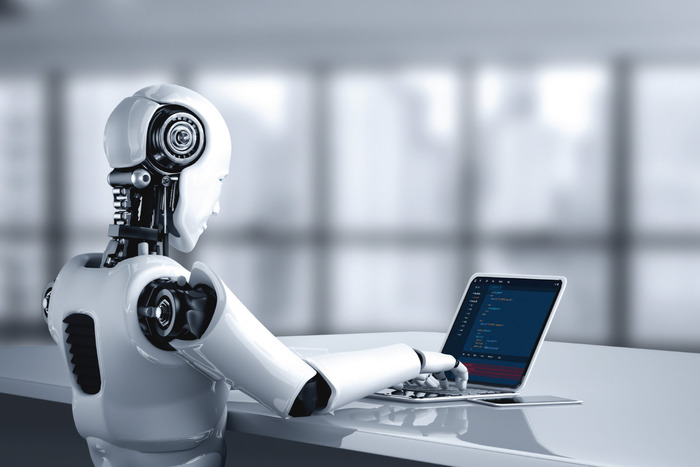We are currently in the artificial intelligence boom and the past year has seen many developments with regard to AI. Today, many industries have embraced it and are enjoying its pronounced capabilities. Software development is an excellent example.
AI/ML has helped gaming studios streamline their development process, albeit usually short of a human developer’s unique intricacies and flair. But can AI replace software developers in the future? After all, players can now enjoy a wealth of AI-powered games, ranging from bingo and slots to table games and crash games.
The Role of AI/ML in Game Development
AI/ML has made colossal strides on the game development front. Apart from streamlining code generation, optimization, and testing processes, AI also does well in creating an adaptive yet dynamic gaming environment. Its deep machine-learning features improve game graphics and visual effects for a more immersive session.
But how does this technology compare to human development? In recent years, we’ve seen massive uproar in various industries where certain players fear that AI is taking over their roles. A good example is the film and TV industry, where the Writers Guild of America disputed AI’s influence. Fortunately, some protections were put in place to ensure that both companies and writers benefit.
That goes to show how much of a threat AI poses. But fear not because barring AI and completely replacing humans, in this case, software developers, is highly unlikely, and here’s why.
AI Lacks Innovation and Creativity
Games go beyond algorithms and random yet fair results. Their popularity arises from the fact that they can transport the players to an immersive world that evokes emotions while telling a relatable yet compelling story. However, AI lacks the deep understanding of the human experience that human developers would otherwise provide.
Therefore, no matter how advanced an AI model is, it cannot replicate such intrinsic human attributes. After all, these human-like attributes serve as bait to players when it comes to trying out a new title.
AI Cannot Provide Engaging Player Feedback or Quality Assurance
Yes, AI has proven essential in detecting and fixing bugs. Similarly, its natural language processing capabilities facilitate thorough testing to ensure products meet user expectations.
However, nothing beats the engaging and intuitive feedback of a human tester. Besides playing the game in real life and reporting issues, they will also provide realistic feedback about the game against their expectations.
Combining AI and human testing is highly beneficial in sectors like online gambling which has quickly adopted AI. Online casino games are popular for their fun experience and incredibly unpredictable results. With that, AI has helped in several ways including algorithmic development and player behavior analysis to find top trends.
But once combined with human testing, developers can get a realistic view of a game’s user experience, regulatory compliance, as well as cultural appropriateness. That way, they adopt a more rigorous approach to creating titles that players will actually enjoy.
Moral and Ethical Considerations
Often, online games serve as a reflection of modern society. Again, that requires AI to dive into the human experience, whereby it doesn’t have capacity. Luckily, human developers can find creative ways to tackle moral dilemmas and complex themes with subtlety and respect.
Moral and ethical considerations are crucial in a game’s acceptance rate when launched on the market. After all, companies always want to come up with games that have a deep understanding of societal/cultural norms. Far from it, they want to create games that players will be excited to play every time.
AI Quickens the Research and Pre-Planning Process
One tedious and repetitive area in game development is the pre-production and planning process. That’s because it entails analyzing big chunks of data to understand user needs, patterns, preferences, and pain points. But even in this process, it requires guidance from a human developer.
With the correct prompts, it can influence design options while also contributing to creating storyline ideas that meet player preferences. That way, developers can combine all these insights and create enjoyable and engaging titles.
Humans Can Collaborate and Brainstorm
Another thrilling aspect of game development is that creatives can combine their expertise and develop mind-blowing titles. Of course, AI can help with procedural tasks like optimization and algorithm generation. But when creatives put their minds together, we are more likely to see surprising twists and unexpected challenges.
Since patterns and algorithms bound AI, it consistently struggles to replicate human intuition. But once the two forces are combined, they can push the boundaries of current gaming titles as we know them.
The Future of Gaming with AI
AI has already made its mark in the gaming industry. Apart from reshaping how people play and experience online titles, it has also changed game development. Although it won’t take over, it has changed how human developers do things.
As a matter of fact, AI/ML has shifted the industry so much that developers need a new set of skills to stay competitive. That way, they can efficiently seize and capitalize on AI’s opportunities.
But overall, no one can deny that AI is here to stay. That’s why many industries are pushing to have measures in place to ensure various teams know how to use them for maximum benefit.


